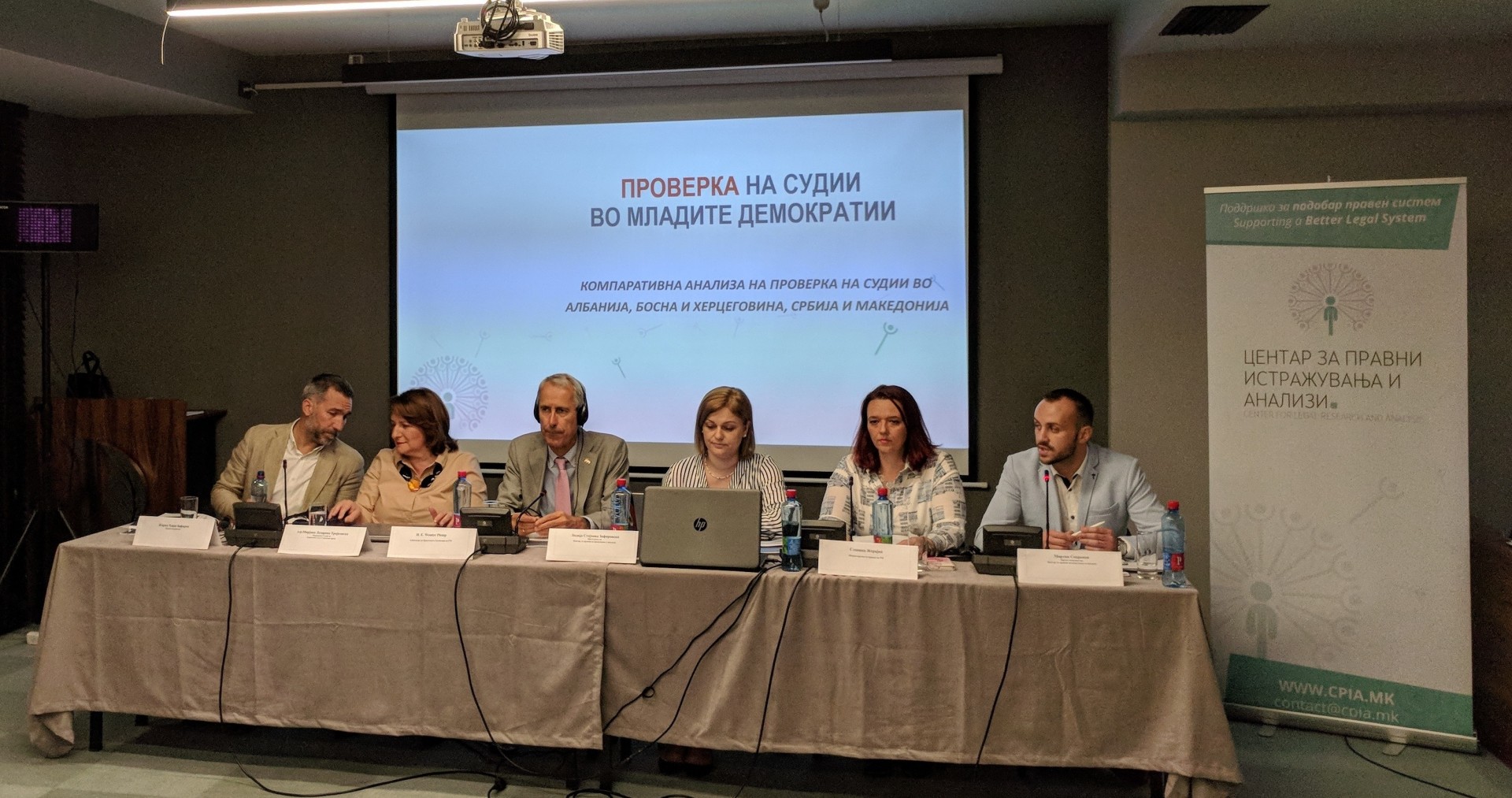
The Center for Legal Research and Analysis held a promotion of a comparative analysis and a public policy document for vetting of judges.
On 31st of May 2018 at the Park Hotel – Skopje, the Center for Legal Research and Analysis (CPIA) held a public presentation on “Comparative analysis of mechanisms for vetting of judges in Albania, Bosnia and Herzegovina, Serbia and Macedonia” and Policy analysis and recommendations “Possibilities and perspectives for improvement of the quality of the Judiciary in Macedonia (appointment, evaluation and dismissal of judges)“, as part of the project “Comparative study on vetting experiences in judiciary in emerging democracies” funded by the Embassy of the Kingdom of the Netherlands.
In his welcoming speech, the Ambassador of the Kingdom of the Netherlands HE. Wouter Plomp expressed hope that the lessons/findings from focus groups held with judges and experiences from the Western Balkans will help to design a mechanism that will support a professional and impartial judiciary. Underlining that, the presentation of the documents is another step towards the rule of law – which will remain their priority as the cornerstone of democracy, economic growth, and development.
The Comparative analysis of judicial vetting mechanisms was subsequently presented by the author team Lidija Stojkova-Zafirovska, Zarko Hadzi Zafirov and Martin Sopronov. While in the second part of the event, the study “Possibilities and perspectives for improving the quality of the Judiciary in Macedonia” was presented by the author Mirjana Lazarova-Trajkovska, former judge at the European Court of Human Rights.
Examples of transitional democracies (such as Albania, Bosnia and Herzegovina and Serbia) were presented as part of the analysis of judges’ vetting models, those countries designed and conducted a re-evaluation and general re-election/re-appointment of judges, which could help in the application of a model in the Republic of Macedonia.
The authors particularly emphasized that “The development of the criteria for vetting of judges, which would be verifiable, relevant and determined through separate procedures, with a guarantee for the protection of procedural rights of the individuals, is essential for the success of the transitional reform. These criteria should remain a guide for employing future staffs. “
In the study “Possibilities and perspectives for improving the quality of the Judiciary in Macedonia”, Mirjana Lazarova-Trajkovska emphasized that the judiciary must be completely outside the influence of politicians and politics, especially important role in this part has the Judicial Council. The issue of the election of members of the Judicial Council, the structure of the composition of the Council, as well as the professionalism and ethics of the judges is also important for the independence of the judiciary.
The main recommendations of this document are to precisely strengthen and improve the independence of the judiciary, judicial institutions and judges, which indicate the impact of politics as a problem in the judiciary.